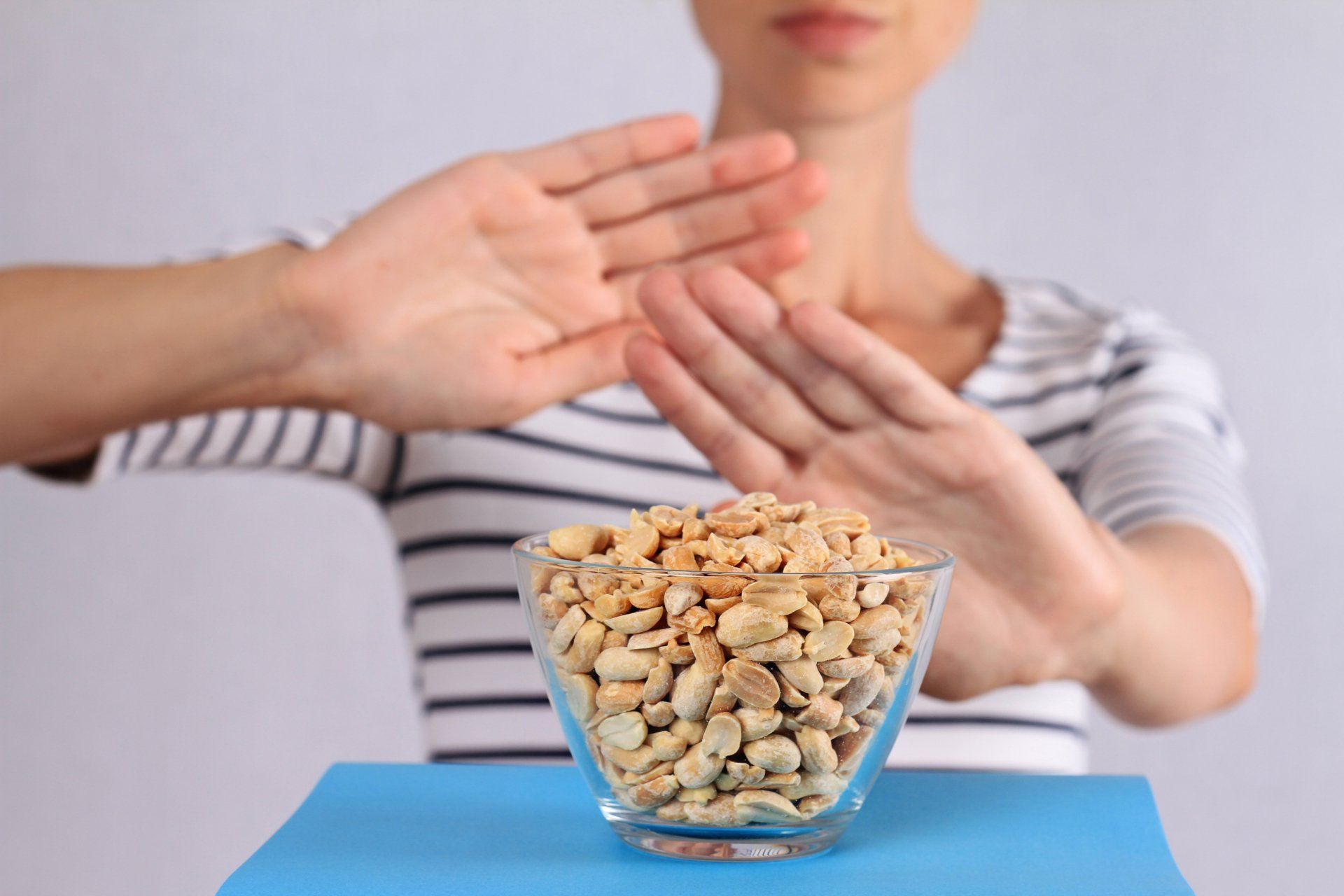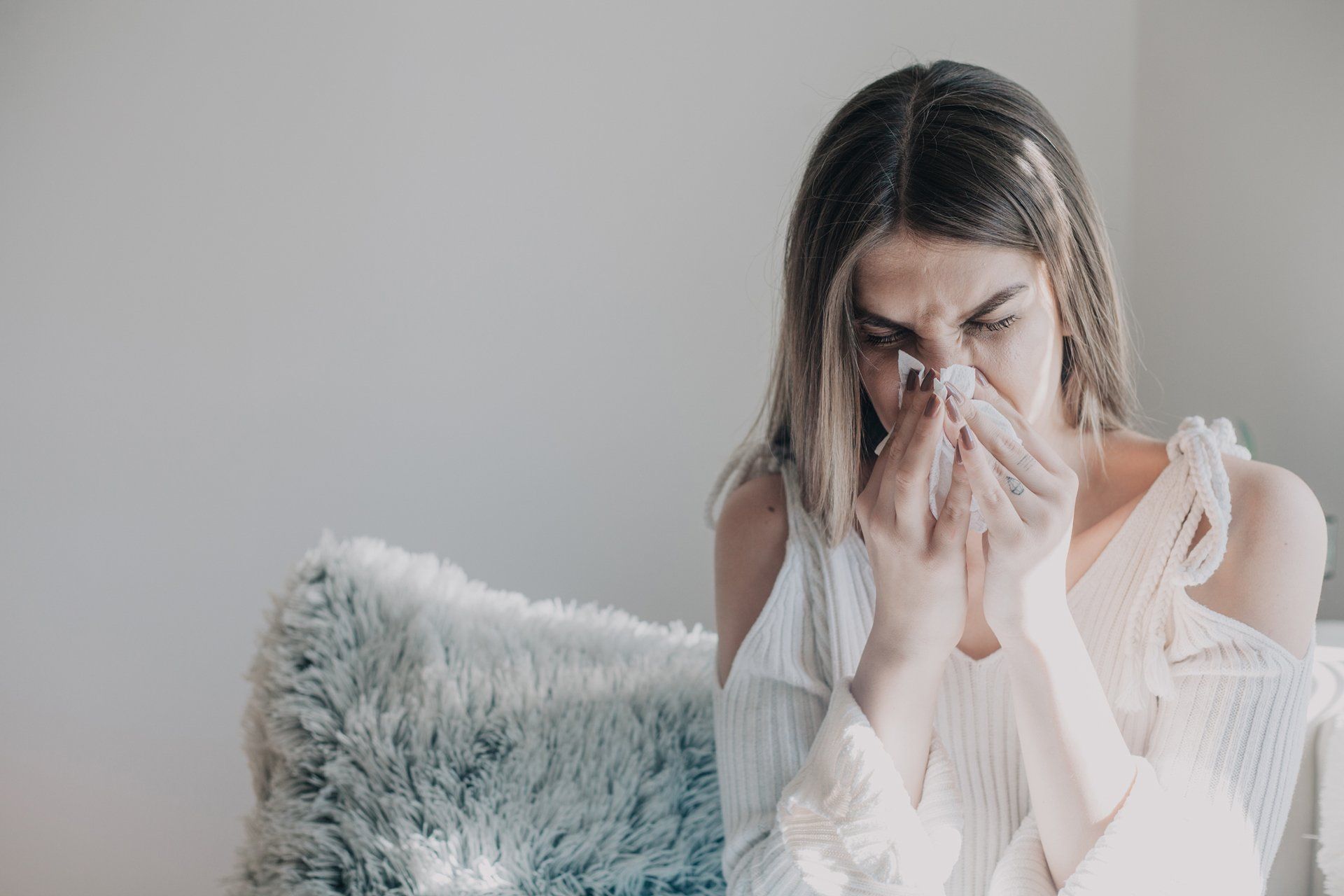Boosting Your Immune System
Admin • August 27, 2018

If you suffer from frequent allergies, you might feel as if you have no hope for a comfortable life. However, this is not true. Boosting your immune system can help mitigate the symptoms of allergies.
Building a strong defense for your body is about more than taking Vitamin C. You need other resources in your bag of tricks. The following methods will help you build up your system so that you can enjoy life more fully.
Avoid Stress
Stress is an immunosuppressant, meaning that it prevents your system from working to its fullest capability. You may notice that you often feel under the weather when you are also stressed or anxious. This is no coincidence. Having a suppressed immune system - whether it's the result of stress or something else - means that you are more likely to get sick. It also means that your allergies are more likely to flare up.
Reducing the amount of stress you have in your life will also reduce your allergy symptoms. While you may not be able to avoid all sources of stress in your life, see what you can do to cut out unnecessary activities or responsibilities. Remember, your well-being is worth it.
Sleep Well
Lack of sleep can also lead to significant changes to your immune system. Individuals who get little sleep are more likely to get sick after viral exposure than those who receive a full night's rest.
Sleep allows your immune system to release a protein known as cytokine, which fights inflammation and infection. Make sure to catch about seven or eight hours of sleep each night to reap the benefits of this antibody.
Avoid Alcohol
Sipping an alcoholic beverage every once in a while is not going to have a major effect on your immune system, but drinking these beverages day after day could have a significant influence.
Drinking often actually prevents white blood cells from doing their job and eliminating bacteria. According to some studies, infectious diseases are related to high rates of alcohol consumption.
Alcohol can also impact your ability to get a full night of sleep, meaning that you may find yourself facing the effects of sleep withdrawal on your immune system as well.
Alcohol can also impact your ability to get a full night of sleep, meaning that you may find yourself facing the effects of sleep withdrawal on your immune system as well.
On the other hand, some studies suggest that moderate use of wine and beer may actually benefit your health. The key is to drink alcohol only in moderation.
Avoid Cigarettes
Smoking cigarettes severely impacts your body's ability to heal itself. Even after surgery, individuals who smoke are more likely to experience an infection. Smoking cigarettes can significantly slow the amount of time it takes your body to heal itself.
While some studies suggest that nicotine could act as an anti-inflammatory agent, the truth is that, even if this is true, the substance also has detriments. It suppresses the immune system, preventing it from acting to protect you.
Eat Well
Your diet has a lot to do with how you feel. Those who eat a diet rich in vegetables and fruits are more likely to have better immune systems. Eating a diet rich in sugar has the opposite effect.
Science also suggests that eating more colorful produce is the most beneficial for your system. These food items are the ones most likely to be rich in minerals, vitamins, and other nutrients that your body - including your immune system - needs. Next time you think about reaching for high-calorie carbs, consider grabbing blueberries or even a bell pepper instead.
Seek Treatment
You do not have to live with allergy symptoms on a daily basis. Resources are available to help you. An allergy specialist can help you discover your allergy triggers and prescribe medication and other strategies that will mitigate your symptoms.
The Allergy and Asthma Clinic of Fort Worth
offers assistance with allergy management. Call today to set up an appointment with a professional who understands your condition.
If your sinuses bother you weeks after you have gotten over a cold, you may have developed sinusitis. If you think you have this condition, keep reading.
Do you suffer from ear allergies? Do something about your allergy-related ear issues with these frequently asked and answered questions.
If you think you might suffer from a sun allergy, learn about what sets it off, possible treatment options, and strategies to keep your symptoms at bay.
If you have noticeable trouble gathering your thoughts or maintaining your alertness, learn how your allergies may create or aggravate your tiredness.






